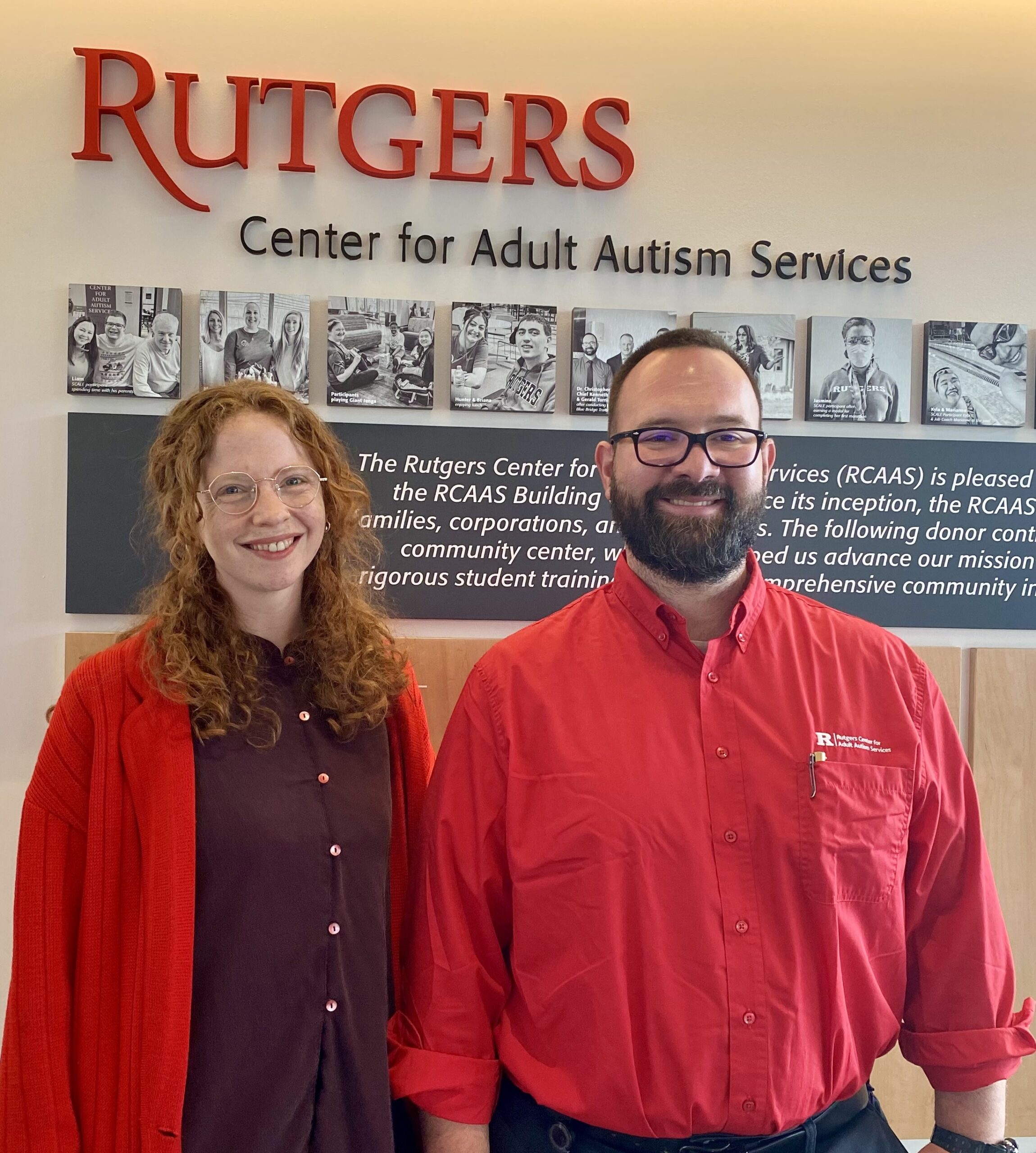Neurodiversity is a term that describes the different ways that humans process information. A variety of neurotypes exist such as attention deficit hyperactivity disorder (ADHD), autism spectrum disorder (ASD), dyslexia, and more. This teaching spotlight focuses on ASD and highlights Dr. Christopher Manente’s Byrne seminar course, Perspectives on Autism in Adulthood, co-taught this semester with Dr. Elaine Clarke in the Rutgers Center for Adult Autism Services (RCAAS), a beautiful facility located on the Douglass Campus of Rutgers University-New Brunswick. Dr. Manente is Founding and Executive Director of RCAAS and Associate Professor of Clinical Practice in the Applied Psychology Department. Dr. Clarke is a postdoctoral scholar in Dr. Vanessa Bal’s LifeSPAN lab. She is also a member of the Psychological Services Clinic team at the RCAAS, led by Dr. Bal.
The need for support, awareness, and advocacy in the adult autistic community is evident. As highlighted in the course description, over 5,000,000 adults in the United States live with ASD and many of them age out of various services. To address such need, the RCAAS under Professor Manente’s direction offers “one-of-a-kind” support for neurodivergent adults, including the following:
- College Support Program – coaching and peer mentorship for Rutgers students with ASD; this program is in the process of expanding to also serve students with attention deficit hyperactivity disorder (ADHD)
- Psychological Services Clinic – individualized therapy and assessment services for autistic adults, including Rutgers students
- Intensive Outpatient Clinic – support for adults 21+ with ASD or related disorders and histories of severe challenging behaviors
- Supporting Community Access Through Leisure and Employment (SCALE) – support for various aspects of adult life such as “employment, transportation, and relationships”
While offering these services, Dr. Manente has endeavored to increase awareness of issues surrounding autism in adulthood beyond the walls of the RCAAS and the need for more skilled practitioners through offering his Byrne course, a one-credit, pass/fail seminar capped at a smaller size for first-year students.
TIIP recently performed a guest visit to the class and observed two panel discussions. The first panel focused on the experiences of people living with ASD and included a student enrolled in the College Support Program and an RCAAS employee. The second panel discussion involved three professionals who supported people with ASD; they shared their career journeys and guidance. One panelist previously completed the Perspectives on Autism in Adulthood Byrne Seminar and was currently employed in the Supporting Community Access for Leisure & Employment (SCALE) Program at the center. Another panelist was a current doctoral student in clinical psychology working in the RCAAS Intensive Outpatient Clinic and a third panelist was the Assistant Program Coordinator for the Rutgers College Support Program for neurodivergent students.
Students in the course submitted initial questions to panelists prior to class and were invited to ask more during the session. The discussions painted pictures into the lives of two people with ASD as well as employment options for working with neurodivergent adults.
For their culminating course project, Dr. Manente and Dr. Clarke asked students to reflect on and showcase their learning in the course by creating video-based assignments. Two examples are below, shared with permission.
Perspectives on Autism in Adulthood is a practical example of a course designed to encourage students to engage deeply in a topic and engage in significant learning. Dr. Clarke shares:
Autism researchers and service providers are only starting to focus on autistic adults and their families, who have long deserved more support. Inspiring a new generation of scholars and professionals to work with this population is crucial. With that in mind, watching Byrne seminar students engage with the complexities of neurodiversity and autistic adulthood is truly rewarding.
If you are interested in learning more about Byrne seminars, you can find out more on their website. If you are an instructor interested in teaching a Byrne Seminar, the call for proposals will open later this month. Seminar proposals can be submitted here.
Further, if you would like to read recommendations for teaching amidst neurodiversity, see the resource Teaching with Neurodiversity in Mind.


